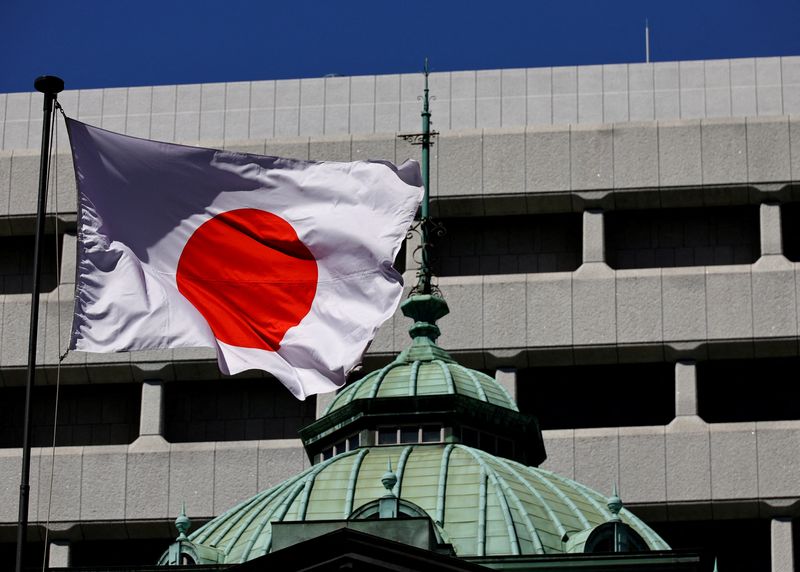By Leika Kihara
TOKYO (Reuters) - The Bank of Japan will highlight how wage hikes are broadening across companies, including at smaller firms, in a report later this month, sources familiar with its thinking said, a move that helps make the case for a near-term interest rate hike.
The findings, which will be featured in an annex of a regular, quarterly report analysing regional Japanese economies, will be based on surveys and hearings conducted by the central bank's nationwide branch offices.
Both the main report and the annex will likely highlight how an increasing number of small and midsize firms are raising salaries, three sources said, a sign of broadening wage increases that are a prerequisite for hiking interest rates.
The results will be among factors the BOJ will scrutinise at its next policy-setting meeting on July 30-31, when the board will issue fresh quarterly growth and inflation forecasts.
The BOJ's regional report will be released on Monday, when its branch managers hold a quarterly meeting in Tokyo. The annex will likely be released at a later date, the sources said.
The BOJ ended eight years of negative interest rates in March on the view that rising wages will likely keep inflation sustainably around its 2% inflation target. Core consumer prices rose 2.5% in May from a year earlier, staying above the BOJ's target for more than two years.
BOJ Governor Kazuo Ueda has signalled the chance of more rate hikes if wage increases broaden and prod companies to raise service prices, thereby pushing underlying inflation towards 2%.
Many market players expect the BOJ to raise interest rates from current near-zero levels this year, though they are divided on whether it will happen this month or later.
A survey released on Wednesday by Japan's largest union Rengo showed companies offered to hike pay by 5.10% on average, the biggest increase in three decades, this year.
But small firms' pay increase, at 4.45%, was less than a 5.19% rise offered by their bigger counterparts. There is uncertainty on whether much smaller firms, which are not covered in the Rengo survey, are able to raise salaries.

The BOJ's network of branches, where officials speak to local business executives regularly, allows the central bank to capture whether wage hikes are broadening among small, regional firms.
About 70% of Japanese workers are employed by small and medium enterprises (SMEs), making their pay moves key to judging whether inflation will durably hit the BOJ's 2% target.